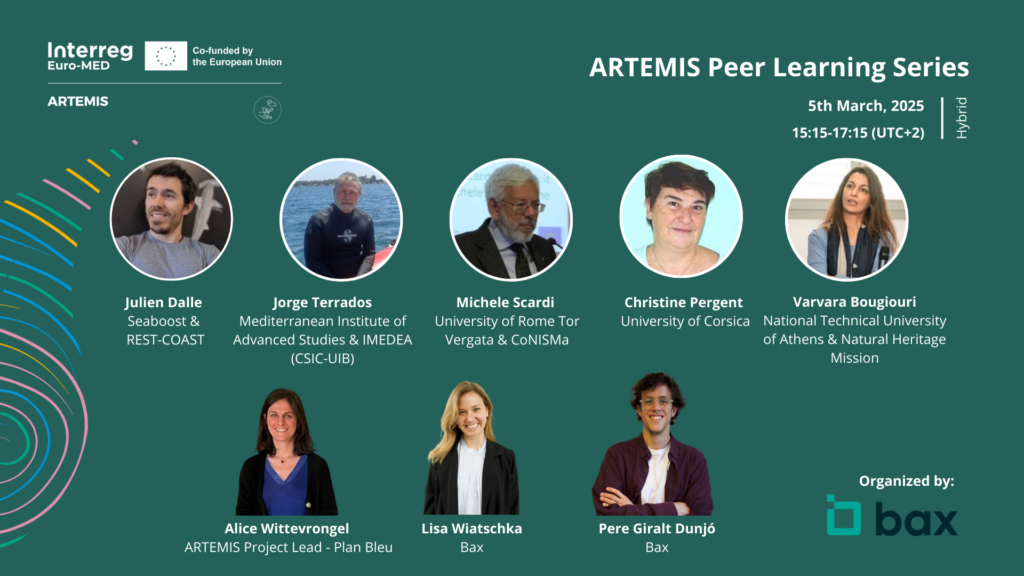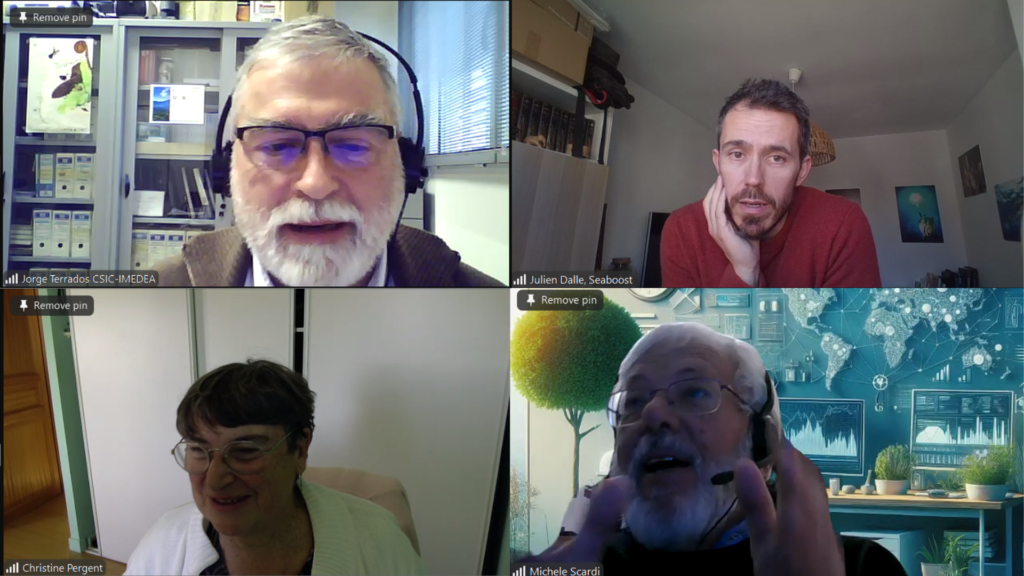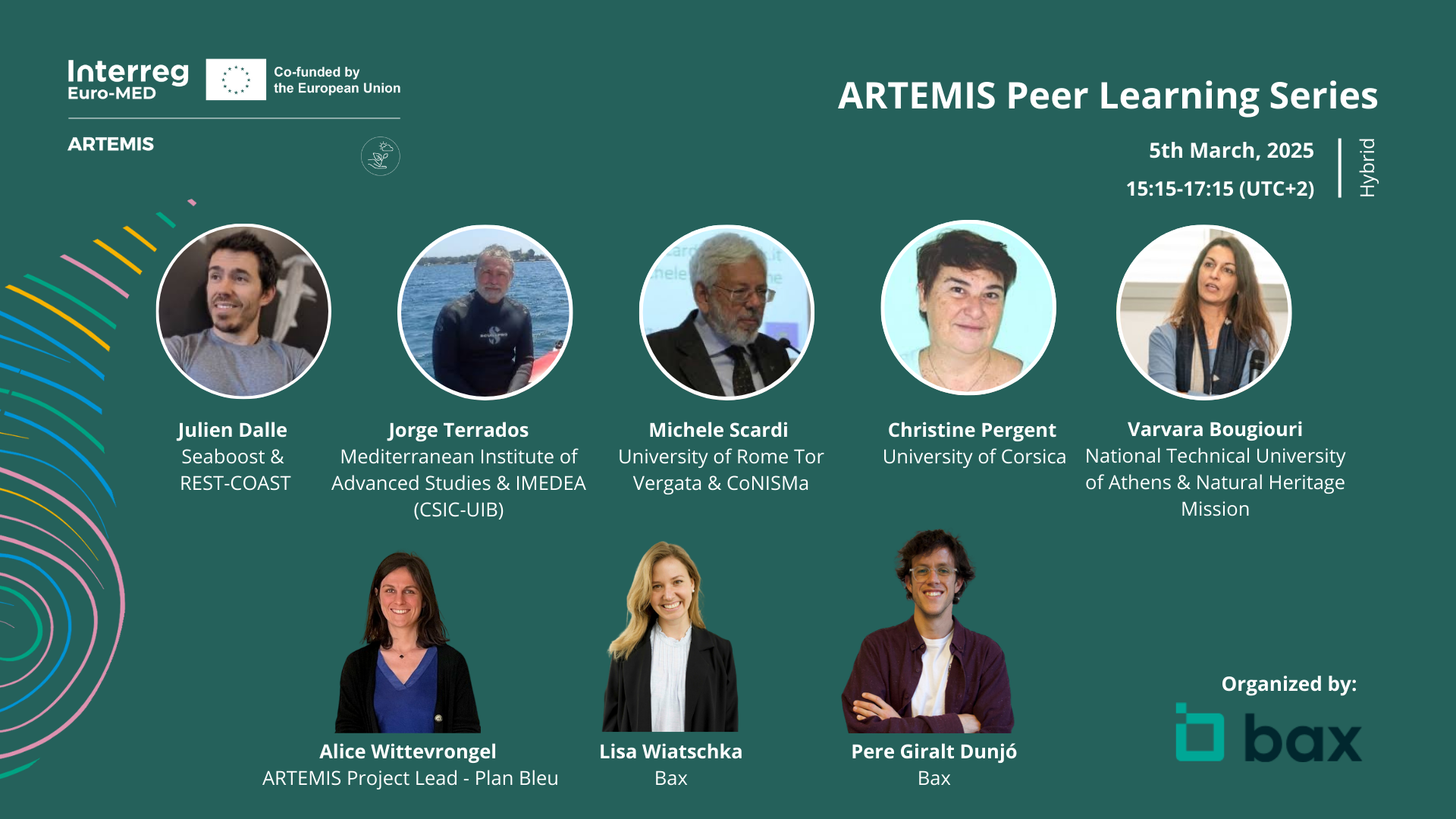
Led by the team of Bax, Lisa Wiatschka and Pere Giralt, the second Peer Learing session focused on the Start-of-the-Art Scientific Methods for Seagrass Restoration in hybrid mode during the ARTEMIS in person meeting in the city of Heraklion | Greece.
This Peer Learning session explored how innovative technologies are advancing monitoring practices and delved into restoration techniques demonstrated by experts with experiences in past restoration projects, offering inspiration for future work.
After the introduction by Varvara Bougiouri from the Natural Heritage Mission – an ARTEMIS-affiliated thematic project – the objectives of the Interreg Euro-MED program were presented, focusing on its commitment to natural heritage conservation and sustainable practices. The importance of collaboration within the ARTEMIS project was highlighted, with particular attention to peer reviews.
”All projects have solutions, and this Peer Learning is the main key output for ARTEMIS. There are deliverables that are really important to highlight as they can give added value to other organizations, to other regions… What is so a peer review? Is to identify what are these main deliverables, main outputs of each project, to collect them, and to evaluate them in order to be ready to be transferred ” said Bougiouri

ARTEMIS Team: Lisa Wiatschka, Varvara Bougiouri and Pere Giralt in Heraklion for the Second Peer Learning Session of ARTEMIS
Following this, Alice Wittervrongel introduced the ARTEMIS project, outlining its four main pillars: ecosystem-based strategies, stakeholder engagement, payment for ecosystem services, and policy integration, implemented across four pilot sites.
The discussion was then turned to our special hosts starting with Jorge Terrados from the Mediterranean Institute of Advanced Studies & IMEDEA (CSIC-UIB), who presented monitoring results after Posidonia restoration efforts with survivorship and growth data. He emphasized the need for comprehensive cost assessments in restoration projects, revealing that costs can vary significantly based on specific project conditions.
The session included then presentations from Julien Dalle from Seaboost & REST-COAST project and Christine Pergent from the University of Corsica, who shared insights on innovative restoration techniques and guidelines for managing Posidonia meadows. Dalle highlighted the importance of local partnerships and monitoring in the restoration of seagrass, while Pergent discussed the necessity of historical evidence and long-term monitoring for successful restoration. Finally, Michele Scardi concluded with a detailed presentation of transplantation efforts and the challenges faced, including high costs and external threats.
The session wrapped up with plans for a report summarizing the discussions and an invitation for collaboration in future initiatives.
We thank our guests for sharing with us their knowledge and their engagement for our common future.

Panelists: Jorge Terrados, Julien Dalle, Christine Pergent and Michele Scardi joined us online for the Second Peer Learning Session of ARTEMIS


